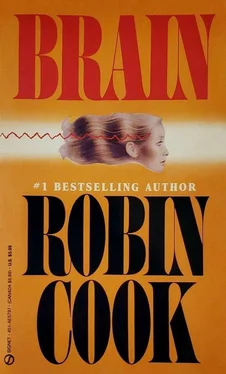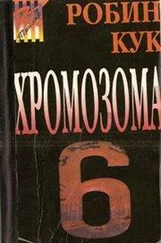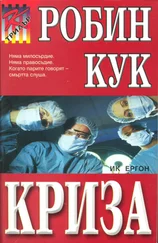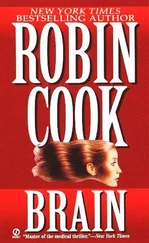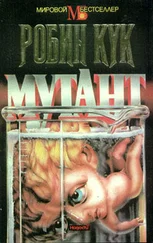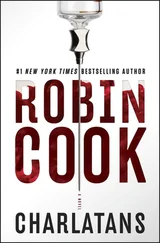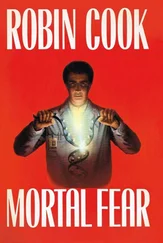“I think you’re stubborn,” said Denise.
“Compulsive,” said Martin.
“When do you want me to go to the GYN clinic?”
“As soon as possible.”
“Okay. I’ll make it for tomorrow.”
While Sanger used the hair dryer, conversation was impossible. Philips got out of the shower and shaved with one of her disposable razors. The two of them had to do a complicated dance in the confines of the small bathroom.
As Denise leaned close to the mirror to put on her eye makeup she asked, “What do you think is causing the density variation on those X rays?”
“I really don’t know,” said Philips, trying to tame his thick blond hair. “That’s why I’ve got the section in Pathology.”
Denise leaned back to assay her efforts. “It seems that answering that question would be the first step rather than associating the abnormality with a specific disease like multiple sclerosis.”
“You’re right,” said Philips. “The multiple sclerosis idea originated from the charts. It was a stab in the dark. But you know something? You’ve just given me another idea.”
Philips entered the old medical-school building from the tunnel. The entrance from the street had long since been sealed off. As he climbed the stairs to the lobby, he felt a surprising sentimentality for that time in his life when the future held nothing but promise. When he reached the familiar dark wood doors with the worn red leather panels, he paused. The carefully lettered sign saying MEDICAL SCHOOL had been desecrated by a crude board nailed haphazardly across it. Below, held in place with thumbtacks, was a cardboard sign which read, “Medical School located in the Burger Building.”
Beyond the venerable old doors, the decor deteriorated. The old foyer had been demolished, its oak wainscoting sold at auction. The renovation funds had dried up even before the demolition had been completed.
Martin followed a path cleared of debris that ran around what had been an information booth, and started up the curved staircase. Looking down the length of the foyer he could see the barred entrance from the street. The doors had been chained together.
Philips’ destination was the Barrow Amphitheatre. When he arrived he noticed a new sign that read DEPARTMENT OF COMPUTER SCIENCE: DIVISION OF ARTIFICIAL INTELLIGENCE. Philips opened the door and, walking up to the iron piping that formed the railing, looked down into the semi-circular auditorium. The seats had been removed. Arranged in intervals on the various tiers were all sorts of components. Down in the pit were two large units constructed similarly to the small processor that had been brought to Philips’ office. A young man in a short-sleeved white coat was working on one of them. He had a soldering gun in one hand and wire in the other.
“Can I help you?” he shouted.
“I’m looking for William Michaels,” yelled Philips.
“He’s not here yet.” The man put down his tools and worked his way up toward Philips. “Would you like to leave a message?”
“Just tell Mr. Michaels to give Dr. Philips a call.”
“You’re Dr. Philips. Nice to meet you. I’m Carl Rudman, one of Mr. Michaels’ graduate students.” Rudman stuck his hand out through the railing. Philips grasped it, looking out over the impressive equipment.
“Quite a setup you have down here.” Martin had never visited the computer lab before and had not imagined that it was so extensive. “It gives me a strange feeling to be in this room,” he admitted. “I went to med school here and back in sixty-one, I took microbiology in this amphitheater.”
“Well,” said Rudman. “At least we’re putting it to good use. We probably wouldn’t have gotten any space if they hadn’t run out of money for the med-school renovation. And this place is perfect for computer work because there’s never any people.”
“Are the microbiology labs still intact behind the amphitheater?”
“They sure are. In fact, we’re using them for our memory research. The isolation is perfect. I’ll bet you don’t realize how much spying goes on in the computer world.”
“You’re right,” said Philips as his beeper began its insistent sound. He switched it off and asked, “Do you know anything about the skull-reading program?”
“Of course. That’s our prototype artificial intelligence program. All of us know a great deal about it.”
“Well, maybe you can answer my question. I wanted to ask Michaels if the subroutine dealing with densities can be separately printed.”
“Sure can. Just ask the computer. That thing will do just about everything but polish your shoes.”
By eight-fifteen Pathology was in full swing. The long counter top with its line of microscopes was packed with residents. Frozen sections had begun arriving fifteen minutes earlier from surgery. Martin found Reynolds in his small office in front of an elaborate microscope fitted with a thirty-five-millimeter camera on the top so he could photograph whatever he was looking at.
“You got a minute?” asked Philips.
“Sure. In fact I already looked at those sections you brought up last night. Benjamin Barnes brought them in to me this morning.”
“He’s a pleasant fellow,” said Martin sarcastically.
“He is cantankerous, but an excellent pathology resident. Besides, I like having him around. He makes me feel skinny.”
“What did you find on the slides?”
“Very interesting. I want someone from Neuropath to look at them because I don’t know what it is. Focal nerve cells have either dropped out or are in bad shape with dark, disintegrating nuclei. There’s little or no inflammation. But the most curious thing is that the nerve-cell destruction is in narrow columns perpendicular to the surface of the brain. I’ve never seen anything like it.”
“How about the various stains. What did they show?”
“Nothing. No calcium or heavy metals if that’s what you mean.”
“Then there’s nothing that you could see that would show up on an X ray?” asked Philips.
“Absolutely not,” answered Reynolds. “Certainly not the microscopic columns of cell death. Barnes said you mentioned multiple sclerosis. Not a chance. There were no myelin changes.”
“If you had to hazard a diagnosis, what would you say?”
“That would be tough. Virus, I guess. But I wouldn’t feel confident. This stuff looks bizarre.”
When Philips got to his office Helen was waiting with a virtual ambush. She jumped up and tried to bar entrance with a handful of telephone messages and correspondence. But Philips faked left and went around her to the right, grinning the whole time. The night with Denise had changed his whole outlook.
“Where have you been? It’s almost nine o’clock.” Helen began to give him his calls as he rummaged around on his desk for Lisa Marino’s skull film. It was under the hospital charts, which were under the master skull-film list. With the X ray under his arm, Philips walked over to the small computer and turned it on. To Helen’s annoyance he began keying in the information on the input typewriter. He instructed the machine to display the density sub-routine.
“Dr. Goldblatt’s secretary called twice,” said Helen, “and you’re supposed to call the instant you arrive.”
The output unit activated and asked Martin if he wanted a digital and/or analog display. Philips didn’t know so he asked for both. The printout told him to insert the film.
“Also,” droned Helen, “Dr. Clinton Clark, Chief of Gynecology called, not his secretary, the doctor himself. And he sounded very angry. He wants you to call. And Mr. Drake wants a call too.”
The printout leaped into action and began spewing out page after page of paper filled with numbers. Philips watched with mounting confusion. It was as if the little machine had had some sort of nervous breakdown.
Читать дальше
